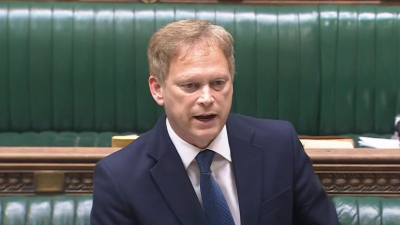In a bold move that has ignited controversy, Memphis-Shelby County Schools has confirmed its decision to permit the hosting of an After School Satan Club (ASSC) at Chimneyrock Elementary School in Cordova. Despite facing strong opposition from faith and education leaders in Tennessee, the school district defended its stance, stating that it would adhere to current rules allowing the rental of space to non-profit organizations.
Approximately 40 members of the faith community gathered at Memphis-Shelby County Schools to voice their concerns over the planned club and to question the intentions of The Satanic Temple, the organization behind ASSC. The protesters emphasized the need for students to have signed permission slips to attend and expressed support for religious organizations that have partnered with the district.
We're going to stand up, and we're going to be vocal. Satan has no room in this district," declared Althea Greene, board chair and local pastor, addressing the gathered community leaders, as reported by the Commercial Appeal.
The After School Satan Club, associated with the Satanic Temple, is a federally recognized non-profit organization with chapters across the United States. The club plans to commence sessions in the school library from January 10th, offering activities that align with its nontheistic perspective, viewing Satan as a metaphorical symbol of rejecting tyranny and championing the human mind and spirit.
While the school district maintained its commitment to renting out space to the non-profit under existing rules, interim Superintendent Toni Williams acknowledged the demands to ban all faith-based organizations from schools. Williams emphasized her duty to uphold board policy, state laws, and the Constitution, cautioning against an agenda seeking to eliminate all faith-based partnerships with the district. The controversy continues to unfold as the community grapples with the clash between religious beliefs and constitutional rights within the educational setting.
As the controversy surrounding the After School Satan Club (ASSC) at Chimneyrock Elementary School in Cordova intensifies, the clash between constitutional rights and deeply held religious beliefs remains unresolved. Memphis-Shelby County Schools, steadfast in their decision to adhere to current rules allowing the rental of space to non-profit organizations, faces continued opposition from faith and education leaders in Tennessee.
The tension reached a boiling point as approximately 40 members of the faith community gathered to express their concerns, emphasizing the necessity of signed permission slips for students and voicing support for religious organizations partnering with the district. Board chair and local pastor Althea Greene's declaration that "Satan has no room in this district" reflects the impassioned sentiments of those opposing the ASSC.
The After School Satan Club, affiliated with the Satanic Temple, asserts its status as a federally recognized non-profit organization with a nontheistic perspective. The club's activities aim to promote a scientific, rationalistic, and non-superstitious worldview, distancing itself from attempts to convert children to any religious ideology.
In the face of demands to ban all faith-based organizations from schools, interim Superintendent Toni Williams reaffirms her commitment to uphold board policy, state laws, and the Constitution. However, she cautions against what she perceives as an agenda to eliminate all faith-based partnerships within the district.
As the community grapples with this complex intersection of constitutional rights, freedom of expression, and religious convictions, the fate of the After School Satan Club in Memphis underscores the ongoing challenges in navigating the delicate balance between diverse perspectives within the educational landscape. The unfolding events will undoubtedly prompt further reflection on the boundaries between individual rights and the shared values of a community.







